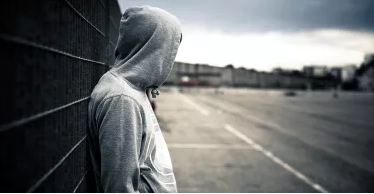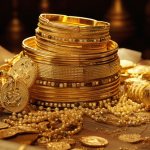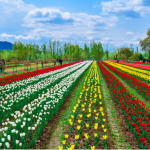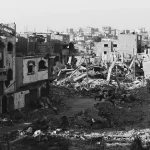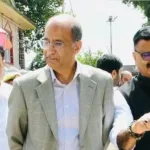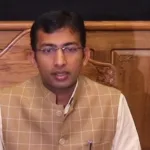CROSS ROADS
Dubai was glittering. I had always been drawn to it and like the countless other youngsters in Azad Kashmir, I too harboured the wish to come here and increase my status back home in Rawalakot. Building a big mansion with a huge terrace, furniture imported from Karachi, a black Toyota Land cruiser, a bike each for my two younger brothers, marrying my sisters to a well-settled businessman in Lahore and a promising bureaucrat in Islamabad and sending my parents for Hajj were the dreams that had brought me to this glamourous city nine years ago.
In Dubai, I started working as a waiter, then a salesman and currently, I work at one of the many three-star hotels in Deira as a Guest Services Associate. My salary including tips is around 2,800 Dirhams per month and the perks include accommodation and meals. As such, I can save a big part of my income and send around 2,400 Dirhams home.
I work together with a lot of people from my region, Pakistanis, Indians, Bangladeshis and Afghans. We communicate fairly easy with each other because of our shared histories, and our food, habits and cultures overlap. While we enjoy indulging in heated debates about politics and religion, strangely enough none of the intense animosity which is prevalent back home overshadow our interactions. Sure, we all mischievously try to score points against each other, especially during cricket matches, but are never disrespectful or aggressive. Perhaps we all understand that despite our differences, our objectives in Dubai are the same; Making money.
I love working with my colleagues irrespective of their origins and nationalities, but as a Kashmiri, I have always been very much drawn to also having friends and acquaintances from Kashmir. Especially the other side of Kashmir. Dal Lake, Gulmarg, pink salted tea, red apples and their relentless sacrifices for Azaadi. That side of Kashmir has always fascinated me and with me, everyone else in Azad Kashmir. Kashmir is our land divided by India, the people there our brothers and sisters, their fight our fight and their sacrifices our pain. It is true that our side is also Kashmir, but that side of Kashmir is magical. Perhaps because I have never been there and only heard stories or maybe because it was yet to achieve Azaadi unlike us in Azad Kashmir.
Furqan was from Srinagar. A doctor working at the NMC Medical Center in Deira. Educated, groomed, and a Kashmiri as I had imagined; Tall, handsome, fair and a personality which oozed confidence. He had told me that in Srinagar, he lived close to the Dal Lake, which had only intrigued me more about this Kashmiri brother from the other side of Kashmir. We had met some five years ago at the Al Falah Mosque in Deira and with the passing of time had become friends.Last month during Ramadan; we would often break the fast together.
Furqan had invited me to his home on Eid-ul-Fitr last Sunday and his wife, Beenish, also from Srinagar, had cooked the most delicious Kashmiri food. She told me about each dish and what it was called; Rogan Josh, Yakhni, Mirchi Korma and Paneer with tomatoes, both of which had actually different Kashmiri names but were too difficult for me to pronounce.
I had always looked up to Furqan. After all, he was from the other side of Kashmir and that too from Srinagar. In addition, he was well-educated and a doctor while I was just a simple clerk in a hotel. He had a nice townhouse on the outskirts of Dubai, a white Nissan Patrol, two maids and apart from his financial status, he was also very intelligent. One could talk to him about anything. He always gave the impression that he knew what he was talking about and weighed every word of his before uttering it while maintaining the rhythm of his arguments. While sipping on my third cup of pink salted tea, I touched upon a topic which I wanted to discuss for a long time.
“Furqan Bhai, one thing has always disturbed me. Despite the struggle for Azaadi which demanded the biggest sacrifices from people from your side of Kashmir, the oppression you endured from India, the martyrs you produced, the rapes, the curfews, the restrictions on your religious practices and the devastation you witnessed, everyone I see from the other side of Kashmir who lives in the Middle-East, Europe or America is either a Doctor, a Businessman, an Engineer or at a high post in a multinational. However, most people from our side of Kashmir, despite us being Azad, are either taxi drivers, non-skilled labourers, waiters or clerks. Why do you think that is? We belong to the same land and have the same history, but I could never understand this”.
Furqan thought long and in his usual style weighed his words before uttering them. “That is very true, Nasir”, he said. “And I know why that is”, he continued. “We are one people, belonging to one land, but you are wrong in saying that we have the same history. And because we do not have the same history, we have different destinies, albeit equally harsh. When Jammu & Kashmir was attacked on 22 October 1947, many people on your side became facilitators and allies of those who attacked our land, raped us, looted us and killed us. You were complicit in the burning of our homes, the kidnappings of our womenfolk and the desecration of our culture. All this while defenceless Kashmiris on our side defended Kashmir with homemade weapons, knifes, sticks and even pots and pans.
Furqan Bhai continued, “For your treachery with your own land, the same fertile land stopped feeding you. It stopped providing you refuge. It separated mother and fathers from their sons”. Furqan Bhai did not stop there, “Half of the population of Azad Kashmir is burning their heels away from their loved ones in search of just plain bread. Azad Kashmir has become Azab Kashmir for its people”. He slammed the table with his fist and yelled, “You deserve this. This is your Makafat-e-Amal”.
I was speechless. Furqan Bhai had never been this angry.
And this right.
Indeed, many on our side of Kashmir had facilitated the Lashkars who had attacked Kashmir. In the name of religion, many of us had committed treason with our land and deceived our brothers and sisters. And yes, half of our population, mostly youngsters, had flown to new climes and lands in search of a livelihood causing brain drain back home. We were being punished for our deceit. Our land, our mother, our soil, Kashmir, had refused to shelter and feed us.
Furqan Bhai was not finished yet. “And don’t be a victim of any illusions. It is true that many Kashmiris from the Valley are engaged in respectable and well-paying jobs, but Kashmir has not forgiven us on the other side as well”. “What do you mean, Furqan Bhai”, I asked.
Furqan Bhai’s eyes were moist and there was this stony look on his face. “Do you know that almost 15 Lakh people in Kashmir are drug addicts? That is almost 10% of the population. Around 30% of these are women and girls and more than 2 Lakh are children between the age group of 10 to 18 years. Over 40 thousand syringes are being used daily for heroin injections and in the last four years there has been an increase of 2000% in the use of drugs in Kashmir. And all of this is not the fault of India, Israel, America, BJP or Modi. Only we are to be blamed”.
Furqan Bhai continued, “It is us Kashmiris who glorified gun culture for over 35 years. The same gun, which under the garb of ‘Azaadi’, accession to Pakistan and Nizam-e-Mustafa, was used to marry the most beautiful girl in the Mohalla, to clear the debt owed to the local shopkeeper, to get our uncle a government contract, to ensure that our sister got a medical seat in the best college, to destroy our forests, ravage our lakes and rivers, ruin our heritage, and annihilate our culture and traditions. We too are reaping what we sowed. And we only sowed hatred and discord. And while we did that, we had the gall to somehow find excuses in order to blame everyone but ourselves. What exactly did we expect our society to become while using a borrowed gun from those who divided us in that autumn of 1947, to commit rape, murder, extortion and kidnapping of our own people? Why do you think I left? I couldn’t bear it anymore”.
Furqan Bhai carried on, “The drug menace in Kashmir is a manifestation of our complicity and silence committed for over three decades. It is an outcome of chasing a mirage and thereby believing that we were justified to kill, rape and loot for it. It is the result of showering flower petals on the dead bodies of those who committed these crimes while elevating them to the status of ‘Shaheed’. It perhaps is a curse from all those widows and orphans we so ardently helped creating and so conveniently abandoned. Or all those we forced into exile. While one gunman was a hero for us, the other somehow was a demon. We became supporters of terrorism. We betrayed our land. We destroyed Kashmir.
Today it has come back to haunt us.
Today, our younger generation has turned into junkies.
Nasir, this is our Makafat-e-Amal”.
It was as if my tongue got stuck in my throat. I couldn’t breathe. I was sweating and my whole body was shivering. After minutes of silence which was only broken when Beenish Bhabhi entered the room with another flask of hot pink salted tea, I somehow mustered the courage to ask one last question. “Will Kashmir forgive us, Furqan Bhai?”
Tears started rolling down his cheeks and in a soft, broken voice he whispered, “I don’t know, Nasir. I don’t know. Would you forgive betrayal? Deceit? Murder? Rape? Treason?
Would Allah forgive Shirk?”
(The Author is the Director of European Foundation for South Asian Studies (EFSAS) and can be reached at: [email protected])


